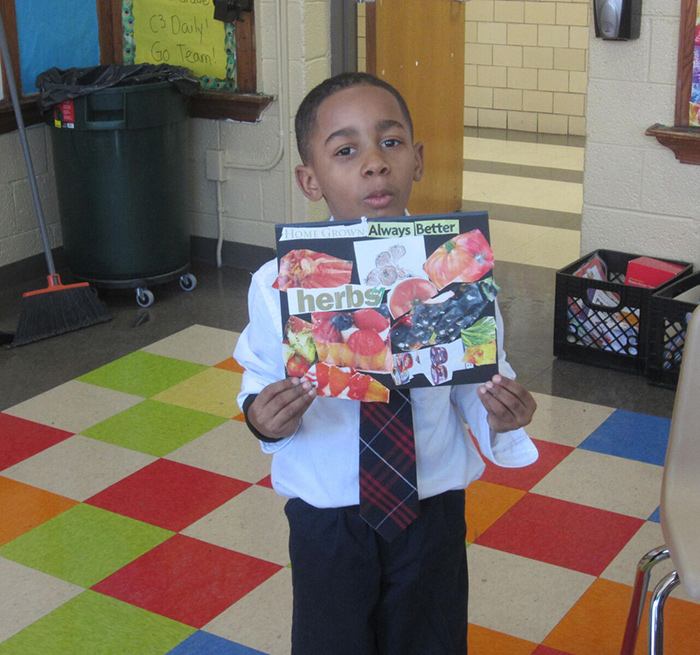There are childhood moments that will always be cherished.
 Growing up in Houston, Texas, Hanifa Adjuman (AKA “Mama Hanifa”) looked forward to every summer. Her maternal grandparents lived in a small, rural town called Navasota. She remembers drinking from a creek, playing with her cousins, growing food, and eating what they grew.
Growing up in Houston, Texas, Hanifa Adjuman (AKA “Mama Hanifa”) looked forward to every summer. Her maternal grandparents lived in a small, rural town called Navasota. She remembers drinking from a creek, playing with her cousins, growing food, and eating what they grew.
“My great-grandmother lived next door,” Adjuman says. “Everybody grew their food. I was always in the middle (of it). I helped with the planting. I helped with the harvesting. All of these experiences shaped me. They molded me. There is something about being close to the land. It has a very humanizing impact (and) makes you see broader and feel deeper.”
She wants that same experience for African American children growing up in Detroit. Food Warriors, an afterschool program being offered by the Detroit Black Community Food Security Network (DBCFSN), is currently underway at Timbuktu Academy on the east side and Bethune Academy on the west side. The program teaches students how to grow food as well as provides nutrition education.

Adjuman, the education and outreach director for the DBCFSN and coordinator with the Food Warriors program, sees agriculture as a healthy way to connect these children with their heritage.
“They’re learning about community and development,” she says. “They’re learning about community sustainability. They’re learning how to reframe how people of African descent look at agriculture.”
This goes back to 1865, when the slaves were freed, she adds. From the experience of slavery, the black community views agriculture through another lens.

“Not that we don’t have a relationship with agriculture, but some of that pain gets juxtaposed upon the agriculture, and we kind of shy away from that,” Adjuman says. “One of the reasons African people were enslaved was because of our genius of agriculture, not because we were ignorant. We have to reframe our narratives in terms of our relationship to agriculture and the land.”
The Food Warriors program is a year-long journey that helps students, ages 5 to 12, develop that relationship. It starts with an introduction called “What is Real Food?”
It serves as a primer that teaches children how to distinguish whole foods from highly processed foods, how to identify untruths in commercials targeting the children and how to read nutrition labels. In addition, they learn how to prepare what they’ve grown and are given recipes to take home.
During the program they also learn about traditional African harvest festivals and how those foods inspired cultures around the world.
With a seven-acre farm in Rouge Park, the children keep busy with an eye towards increasing food security. That means every person in a community has access to healthy, nutritious, safe, affordable, and culturally appropriate food at all times, “not just three times out of the month,” Adjuman says.

Food Warriors is, in essence, about reintegrating the children into nature and understanding agriculture.
“It’s essential that we’re good stewards of our Mother Earth,” she says. “It’s incumbent upon us that we recognize the power within our children. Intergenerational conversion is so essential. We must begin to tell our children our stories. These stories help them frame a new narrative that’s built around the greatness of who they are and the greatness of the things they can do.”
For more information about Food Warriors, visit www.detroitblackfoodsecurity.org, or email hadjuman@dbfsn.org


